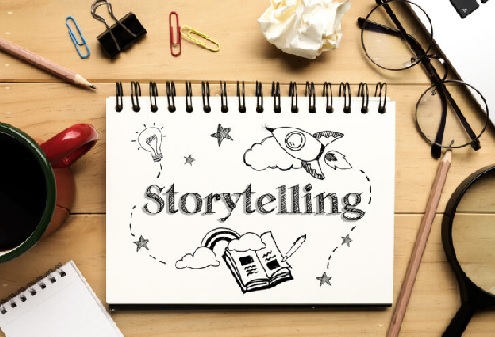We eventually become what we consistently see. Exposure defines our worldview and our worldview shapes our mindset and character. One’s character is not moulded out of a vacuum. Our preferences are borne out of what we have consistently been exposed to.
If Africa is serious about untying the next generation from the shackles of slavery (or neo-colonialism), it must be serious about telling its story ─ the African story. As far as storytelling is concerned, we must move beyond the level of consumption to the level of production.
We must be creators/producers. We must intentionally expose every African, right from childhood to adulthood, to stories that inspire positivity about Africa.
Today, there is little African content, for example, for our babies and toddlers on social media. Almost every lullaby is from the West. Our toddlers have developed a taste for souvenirs of their Western superheroes.
Our sons badly want to wear Superman bags and our daughters, Cinderella clothes. Gradually, our children are being moulded to toe the lines of slavery ─ however we look at it.
Very soon, these children of ours will be the next generation that will spend millions of dollars on bleaching creams in their effort to look like their screen idols.
They will die to wear hair from another man’s land. They will mock their fellows who speak the local dialect while they feign an accent that is not theirs.
The African continent will always be the white man’s cash farm, sad to say. Our children will, unfortunately, be the next generation that will sell off the little natural resources they have for a pittance of favour.
They will spend billions on exports (courtesy of their foreign taste) even though they could produce the same.
The weapon of yesterday’s colonial master was a gun. The weapon of today’s colonial master is storytelling.
Growing up, I do not remember any fictional African hero/superhero I encountered ─ maybe Kwaku Ananse. Despite his heroism, this character was portrayed in almost every story that was told about him as cunning and deceitful. That is not the African spirit. We are a people of courage, not liars. We are inventors not schemers.
We need to have an intentional conversation about the kind of cartoons our children are exposed to today. They may not only be watching to be entertained.
That is where identity theft begins. From these cartoons, they will discover their heroes for life, and they will dream of being where they are. From the screens, the foundation of brainwashing will be successfully laid.
These children will innocently grow up with a foreign taste, despising who they are and what they have. Speaking like their favourite character will be their dream.
Their greatest desire will be to behave and think like the images they have been exposed to. And, that is how they will be programmed to be slaves of children of the West. In other words, neocolonialism will not end with us. It will continue with our children.
There must be an intentional effort to create African heroes for our children. Right from childhood, our children should not aspire to be Spider-Man or Captain America.
They should aspire to be intentionally-made African heroes who embody the spirit of Africa. At least, this will endow them with the foundational mindset that African was not born to serve others but to LEAD and solve problems.
Owning the African story should be an intentional effort by all and sundry. It should not be a mere conversation, not a nine-day wonder.
It should be a policy in every African country to push stories that elevate the identity of Africans.
We need symbolic heroes who will be an embodiment of the Africa we wish to live in.
Black people are not born to be slaves. We are not made to always be at the receiving end of grants. We are born to contribute to society’s growth. We are also made to invest in the world we live in.
As a content creator, I have been intentional about liberating the African mind through my works. Every year, my wife and I publish Africa-themed illustration books that create awareness of abuse among children.
Aside from these books, all my plays are intentionally written and directed to transform African society. I love Africa, but most especially, I love to see Africans love Africa as their own.
We can never own another home. Just as no amount of paint can change a crow into a dove, nothing can change the identity of the African.
We can bleach all we can. Our skin texture will still give us away. No matter how long we live abroad, the white man will still regard us as Africans. Africa is our blood, and we must be unapologetically proud of it.
If it took an intentional effort for others to enslave us, it would demand an equal measure of intentionality to set ourselves free from the shackles of slavery.
This begins with the stories we consume… and those we produce. Colonialism/neo-colonialism is all a mind game. And, of course, storytelling is one of the surest ways to sneak into the mind.
Our slave masters are using stories to enslave us and our children. We need to retell these stories to set ourselves free. Stories liberate generations. They unlock the potential of people.
Our children must be free. They must be proud of their identity. They should not force others to have another’s accent to feel accepted. They must wear, eat and live in Africa wherever they find themselves.
They must own their local dialect and speak it with pride. They must not trade their sense of dignity to earn a sense of belonging.
Our children must win the war we lost. They must be truly independent. They must not be the white man’s slave… again!
Kobina Ansah is the Chief Scribe of Scribe Communications (www.scribecommltd.com) and Scribe Productions (www.scribeproductions.com).

